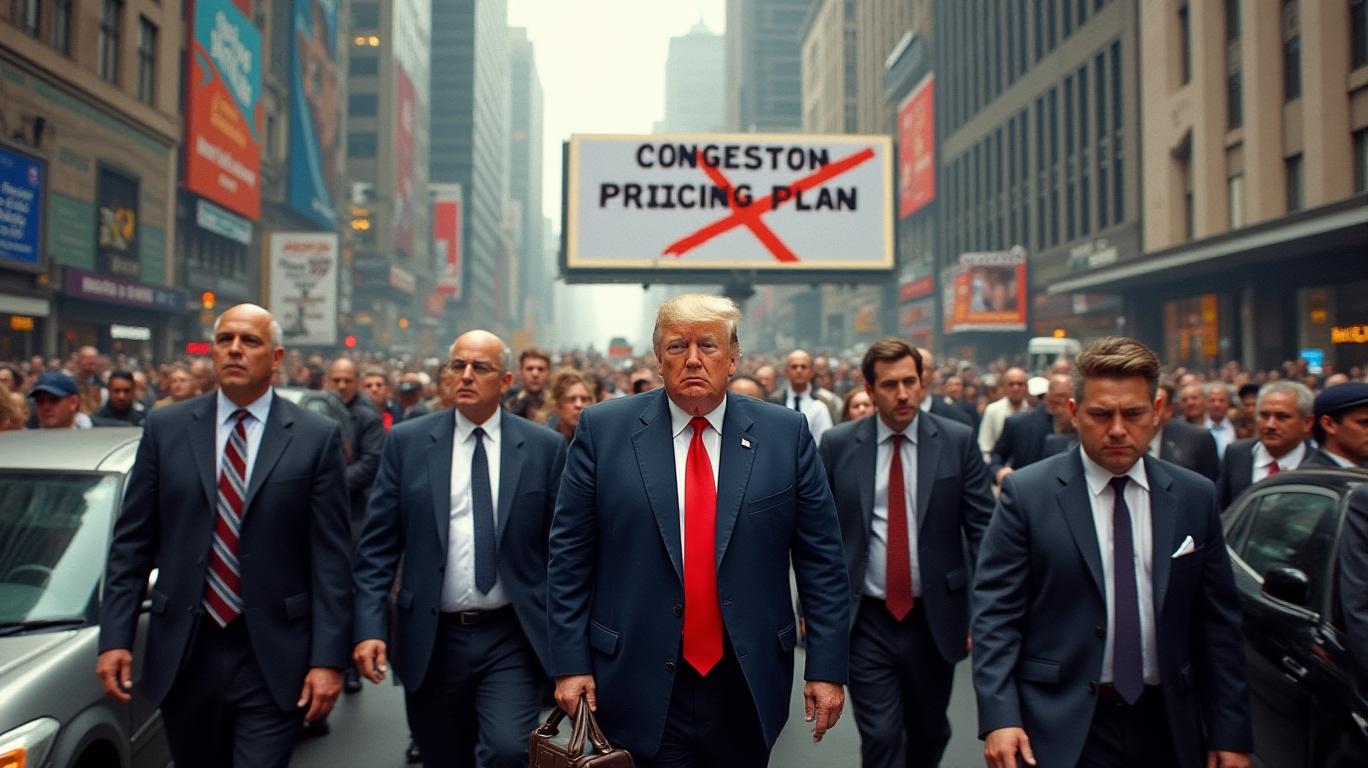Trump Administration's Congestion Pricing Plan Flawed, Internal Memo Reveals
The federal prosecutor’s office in Manhattan inadvertently disclosed an internal memo that critically examined the Trump administration's efforts to dismantle New York City's congestion pricing plan. The memo, which was not intended for public release, highlighted several flaws in the administration's strategy, suggesting that the legal grounds for opposing the toll were weak.
The memo, which was accidentally filed in a court document, revealed that the Department of Justice (DOJ) lawyers had identified significant legal and practical challenges in the administration's plan. These challenges included potential violations of federal law and the likelihood that the plan would face strong opposition from local authorities and environmental groups. The disclosure of the memo has raised questions about the transparency and effectiveness of the administration's approach to transportation policy.
The accidental leak has sparked a debate about the administration's handling of the congestion pricing issue. Critics argue that the memo's contents underscore the administration's lack of a coherentCOHR-- strategy for addressing urban traffic congestion and environmental concerns. Supporters of the congestion pricing plan, which aims to reduce traffic and improve air quality in Manhattan, have welcomed the memo as evidence that the administration's opposition is politically motivated rather than based on sound policy.
The memo's disclosure has also raised concerns about the potential impact on the administration's broader transportation agenda. With the memo highlighting the legal and practical challenges of opposing the congestion pricing plan, some analysts suggest that the administration may need to reconsider its approach to other transportation initiatives. The incident serves as a reminder of the importance of transparency and careful handling of sensitive information in government operations.
The accidental leak of the memo has not only exposed the administration's strategy but also underscored the complexities of urban transportation policy. As New York City continues to grapple with traffic congestion and environmental issues, the memo's disclosure has added a new layer of complexity to the debate. The administration's response to the memo's contents and the broader implications for its transportation agenda remain to be seen.

Quickly understand the history and background of various well-known coins
Latest Articles
Stay ahead of the market.
Get curated U.S. market news, insights and key dates delivered to your inbox.



Comments
No comments yet